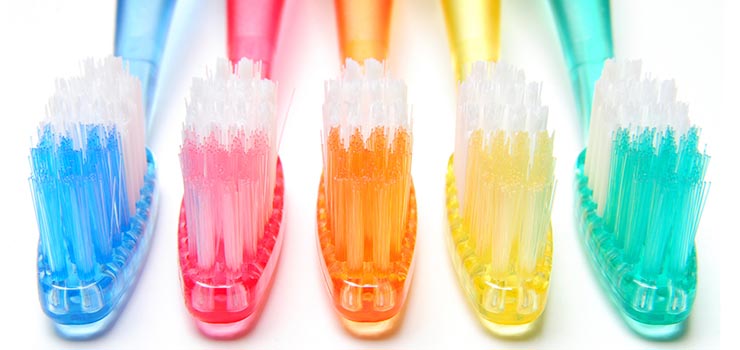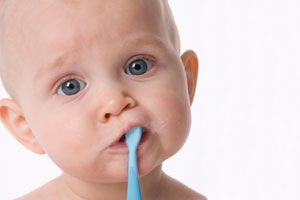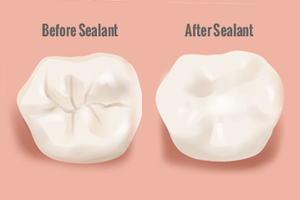
Preventive dentistry

Prevention of mouth and teeth disease is a very important task for every dentist. Thanks to regular short-term and often simple visits to the dentist, the emergence of caries and its complications can be avoided, the appearance of supportive tissue diseases can be controlled, and on this way, premature tooth loss can be prevented. Regular six-monthly controls (if there is no need for frequent visits in an individual case), training on maintaining oral hygiene and proper nutrition, removal of soft and hard dental deposits (dental plaque, calculus or concrement), fluorisation of teeth are unavoidable if you want to save your health. It also means great time and money saving, avoiding long and often expensive interventions.

What is a calculus and how does it occur?
Calculus is hard dental plaque, which results from the precipitation of mineral from saliva into soft dental deposits (dental plaque). It is most commonly seen in adult patients, and its formation is caused by improper oral hygiene, the presence of inadequate fillings, incorrect position of the teeth and crowding in the dental arches.
Do calculus needs to be removed and why?
Calculus is one of the major causes of gingivitis (inflammation of gums) and periodontal disease. He mechanically puts pressure on the gums but also contributes to the further accumulation of soft deposits. This causes inflammation of the supporting tooth tissue and loss of soft tissue and bone tissue. In the distant stages of the disease, comes to loosening and migration of teeth, and then their loss.
For all this, it is clear that a calculus should be removed regularly and the dentist will decide how often on the basis of clinical examination and analysis of X-ray images. In addition, you will also get advice on maintaining oral hygiene and the possible use of antiseptic agents, because without the daily engagement of the patient the results would be greatly reduced.
Dental stones are removed by ultrasound devices, which do not damage the tooth enamel. The intervention is relatively simple and does not require the use of local anesthesia in most patients.
Oral hygiene and proper nutrition are the most important in preserving the health of the mouth and gums in children. Therefore, in early childhood, it is necessary to learn them about proper tooth brushing techniques and explain to them the importance of proper nutrition, both for the teeth and for the health, generally. Consuming soft, processed foods rich in carbohydrates, favor the emergence of caries (in children is frequent and circular caries) and thereby the development of orthodontic anomalies.
Is it necessary to keep the milk teeth?
 Milk teeth are just as important as permanent teeth. They perform chewing function in children, allow normal nutrition, and thus the normal development of the jaw and permanent dentition. By losing only one baby tooth, it can go from totally correct connection to developing orthodontic anomaly, which requires further treatment. Therefore, it is important to pay close attention to the milk teeth. Much can be done to keep them until switch of the teeth.
Milk teeth are just as important as permanent teeth. They perform chewing function in children, allow normal nutrition, and thus the normal development of the jaw and permanent dentition. By losing only one baby tooth, it can go from totally correct connection to developing orthodontic anomaly, which requires further treatment. Therefore, it is important to pay close attention to the milk teeth. Much can be done to keep them until switch of the teeth.
What is fissure sealing and what it serves?
 Fissure sealing is a preventive method, with which the deepest cusps of the side milk teeth (molars), but also permanent teeth (molars and premolars), filled with specially designed materials. This is done in order to prevent the appearance of caries on the bite surfaces of these teeth, where it most often appears in children. Fissure sealants, as a matter of fact, prevent the retention of food on surfaces that are the most unsuitable for cleaning, especially in children.
Fissure sealing is a preventive method, with which the deepest cusps of the side milk teeth (molars), but also permanent teeth (molars and premolars), filled with specially designed materials. This is done in order to prevent the appearance of caries on the bite surfaces of these teeth, where it most often appears in children. Fissure sealants, as a matter of fact, prevent the retention of food on surfaces that are the most unsuitable for cleaning, especially in children.
The significance of this method is confirmed by studies which showed that more than 80% of caries in children occurs just on the bite (occlusal) surfaces of the teeth. Then it is not a strange fact that by this method the percentage of carries that affects the bite surface of the tooth can be reduced by up to 70%.
Which teeth can be sealed?
Only healthy teeth can be sealed. The condition is that they have grown enough and that their entire surface is free, uncovered with gums. In each individual case, the dentist will decide on the need to apply this method.
When to do fissure sealing?
It is considered that fissure sealing is best when it’s done as soon as the bite surface of the teeth is accessible to the application of the sealants, but under a condition that cooperation with the child is at a satisfactory level. Therefore, it is important to start with controls early and on that way create in children a habit of regular dental visits. So, in milk teeth fissure sealing needs to be done already in the third or fourth year, and at the permanent as soon as the first permanent molars (“six-year molars“) emergence, usually in the sixth year.
Fissure sealing is painless, relatively short-term caries prevention method, which does not require the use of local anesthesia and that’s why children accept it easily. Whenever possible, it is necessary to avoid unpleasant interventions during the first visits and that’s why this is one of the first methods that small patients should be introduced to.
At six-months controls, the dentist will check the condition of the mouth and teeth, and therefore the presence of the sealants and assess whether additional corrections are required.
Tooth injuries
It is believed that one-third of all tooth injuries are related to sports activities. In order to prevent sports tooth injuries, today in preventive dentistry are used tooth protectors (“mouth guard”). These protectors, besides the teeth, also protect the surrounding soft and hard tissues (lips, cheeks, tongue, jawbone).
What is bruxism?
Bruxism is a bad habit of compressing and squeezing teeth. It can occur at night or during the day. It is very widespread in the general population and causes unpleasant symptoms such as chewing muscle tension, tooth sensitivity, headache, problems in the temporomandibular (jaw) joint, etc. Bruxism can lead to significant loss of the tooth substance, due to constant friction, falling out of existing filling, but also to the fractures (breaks) of the teeth, which may later require a comprehensive prosthetic reconstruction.
The cause of bruxism is not fully clarified. It is thought that many factors can cause this bad habit, but daily stress is listed as one of the most common causes. One way to reduce the effects of bruxism is the use of splinters (foils), which prevent the excessive wear of hard tooth tissues, breaks of existing fillings and teeth.
